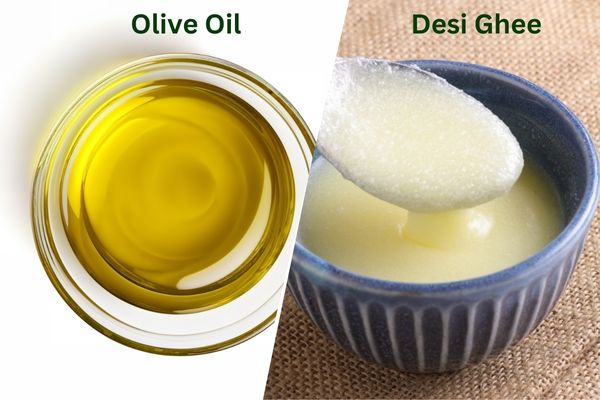Jaggery, or "Gur," has been an integral part of traditional Indian diets for centuries. Often considered a healthier alternative to refined sugar, jaggery is celebrated for its natural sweetness and rich nutritional profile. Its use spans various regions and cultures across India, where it is not only an essential ingredient in cooking but also a key element in Ayurvedic medicine. In this blog, we will explore the role of jaggery in traditional Indian diets, its numerous health benefits, and how Ayurveda incorporates this unrefined sugar into holistic healing practices.
What is Jaggery?
Jaggery is a traditional sweetener made from the sap or juice of sugarcane or date palms. Unlike refined sugar, which undergoes extensive processing, jaggery is minimally processed, retaining its natural molasses content and rich nutrients. Gur jaggery, as it is popularly known in India, is made by boiling down the sap of sugarcane or the juice from palm trees until it solidifies into a dense, dark block or paste.

Types of Jaggery
There are several varieties of jaggery, with the most common being sugarcane jaggery and palm jaggery. Sugarcane jaggery, also known as cane jaggery, is the most widely produced and consumed type of jaggery in India. This jaggery is rich in iron, calcium, and other essential minerals, making it a valuable dietary supplement.
Organic Jaggery and Its Benefits
Organic jaggery, or organic gur, is produced without the use of chemical fertilizers or pesticides, ensuring that it is free from harmful residues. This makes organic gur a preferred choice for health-conscious individuals looking for a natural, eco-friendly sweetener. Pure jaggery, free from artificial additives, is often sought after by those who prioritize a clean and wholesome diet.
The Role of Jaggery in Traditional Indian Diets
In India, jaggery is not just a sweetener but a vital part of the traditional diet. It is used in a wide range of dishes, from sweets and desserts to savory recipes. Additionally, jaggery is often consumed on its own or mixed with other natural ingredients to boost health and vitality.
Jaggery in Sweets and Desserts
Jaggery is a common ingredient in Indian sweets, including laddoos, halwas, and chikkis. These sweets, which are often made during festivals or special occasions, rely on the deep, earthy sweetness of jaggery to enhance their flavor. One of the most famous desserts that use jaggery is tilgul, a traditional sweet made with sesame seeds and jaggery, commonly prepared during Makar Sankranti.
Jaggery in Savory Dishes
Beyond sweets, jaggery also plays a significant role in Indian savory dishes. It is often added to curries and stews to balance the flavors and reduce the acidity. The use of jaggery in dishes like sambar, dal, and chutneys highlights its versatility and importance in Indian cuisine.
The Cultural Significance of Jaggery
Jaggery is also tied to various cultural and religious practices in India. It is often used in rituals and offerings during festivals like Diwali and Pongal. The consumption of jaggery is believed to bring prosperity, good health, and happiness to households.
The Health Benefits of Jaggery
Jaggery is more than just a natural sweetener; it is packed with essential nutrients that contribute to overall well-being. Unlike refined sugar, which provides empty calories, jaggery offers several health benefits, making it a preferred choice for those looking to maintain a healthy lifestyle.
Gur is Good for the Health
Jaggery, or gur, is loaded with antioxidants and minerals such as iron, calcium, magnesium, and potassium. These nutrients are vital for the body's functioning and contribute to strengthening bones, improving digestion, and supporting the immune system. In particular, iron in jaggery helps in the formation of hemoglobin, which is crucial for transporting oxygen in the blood and preventing anemia.
Jaggery for Weight Loss
Interestingly, jaggery has also gained popularity among individuals who are looking to lose weight. While it is a sweetener, jaggery is considered a healthier alternative to refined sugar due to its higher fiber content. Jaggery aids digestion by stimulating the production of digestive enzymes, which in turn helps the body break down food more efficiently. This can lead to better metabolism and support weight management efforts.
How Jaggery Helps in Weight Loss
When consumed in moderation, jaggery can promote weight loss by:
-
Regulating metabolism: Jaggery is rich in minerals that boost metabolic activity, helping the body burn calories more efficiently.
-
Suppressing cravings: The natural sweetness of jaggery can reduce cravings for sugary, processed snacks, thus helping individuals avoid unnecessary calorie intake.
-
Improving digestion: Jaggery improves digestion, reducing bloating and promoting gut health, both of which are essential for effective weight management.
Jaggery in Ayurveda
In Ayurveda, jaggery is regarded as a powerful tool for maintaining balance in the body. It is classified as a "heating" food that can stimulate digestion and provide energy. Ayurvedic practitioners often recommend consuming jaggery to detoxify the body and purify the blood.
Detoxification and Blood Purification
Jaggery is known to promote the detoxification process by helping to flush out toxins from the body. It aids in cleansing the liver, kidneys, and digestive system. Additionally, the iron content in jaggery helps purify the blood, making it an excellent natural remedy for anemia and other blood-related disorders.
Jaggery for Respiratory Health
Ayurveda also recommends jaggery for treating respiratory issues like cough and asthma. When combined with ingredients like ginger and black pepper, jaggery can help relieve congestion, clear mucus from the lungs, and soothe the throat. It is often used in Ayurvedic formulations to support overall respiratory health.
How to Use Jaggery in Your Diet
Incorporating jaggery into your daily diet is simple and can be done in various ways. Here are a few suggestions:
-
Add jaggery to your tea or coffee: Instead of refined sugar, use jaggery to sweeten your beverages.
-
Mix it in your smoothies: Add a small piece of jaggery to your fruit smoothies for a natural boost of sweetness.
-
Use it in cooking: Incorporate jaggery into your savory dishes to balance flavors, particularly in curries and sauces.
-
Enjoy it as a snack: A small piece of jaggery can be consumed on its own as a quick energy booster.
Where to Buy Jaggery
If you’re looking to buy jaggery, it’s important to opt for pure, organic, and natural varieties. You can find high-quality jaggery products online, offering a wide selection of organic and sugarcane-based options.
Buy Jaggery Online
If you're interested in purchasing jaggery, you can buy it online through various stores. Websites like Two Brothers India Shop offer a range of options, including organic gur, pure jaggery, and cane jaggery. Buying jaggery online ensures that you have access to premium quality products that meet your dietary needs.
Buy Organic Gur
For those seeking a healthier and environmentally friendly option, buying organic gur is a great choice. Organic gur is free from harmful chemicals and is produced using sustainable farming practices. You can find a variety of organic jaggery on online marketplaces like Two Brothers India Shop.
FAQs about Jaggery
1. What is the difference between jaggery and sugar?
Jaggery is an unrefined sugar made from sugarcane or palm juice. It retains its natural molasses content, making it richer in minerals and nutrients compared to refined sugar, which is processed and stripped of most of its nutrients.
2. Is jaggery good for weight loss?
Yes, jaggery can support weight loss efforts when consumed in moderation. It aids digestion, boosts metabolism, and suppresses sugar cravings, making it a healthier alternative to refined sugar.
3. How much jaggery should I consume daily?
The recommended daily intake of jaggery varies depending on individual needs, but a small piece (about 20-30 grams) a day is generally considered safe and beneficial. However, it is essential to consume it in moderation due to its high caloric content.
4. Can I use jaggery in my tea or coffee?
Yes, jaggery can be used as a natural sweetener in tea, coffee, and other beverages. It provides a deep, rich sweetness without the harmful effects of refined sugar.
5. Is jaggery better than sugar for health?
Yes, jaggery is generally considered healthier than refined sugar because it contains essential nutrients like iron, magnesium, and potassium. It also helps in digestion and detoxification.
Conclusion
Jaggery, or gur, is much more than just a sweetener in traditional Indian diets. It is a powerhouse of nutrition and health benefits, offering a natural alternative to refined sugar. Whether consumed in sweets, savory dishes, or as a standalone snack, jaggery holds a special place in Indian culture and cuisine. Furthermore, its role in Ayurveda as a detoxifying and health-boosting ingredient underscores its importance in holistic wellness. So, the next time you're looking for a healthier sweetener, remember the power of jaggery. You can easily buy jaggery online or purchase organic gur for the best health benefits











